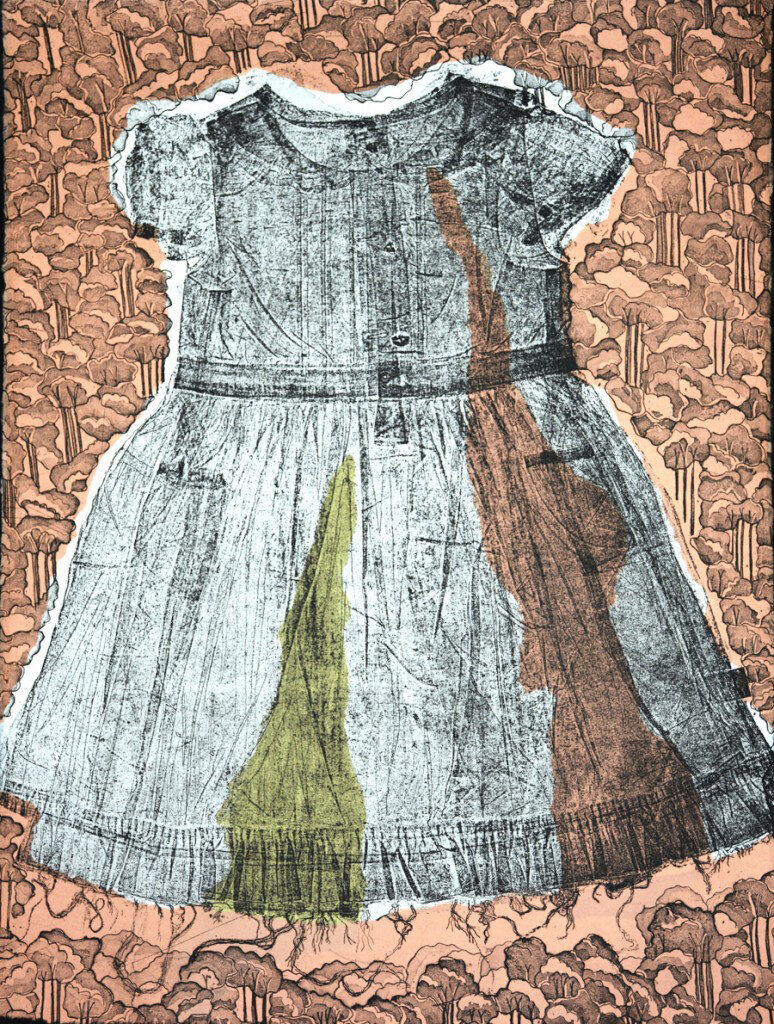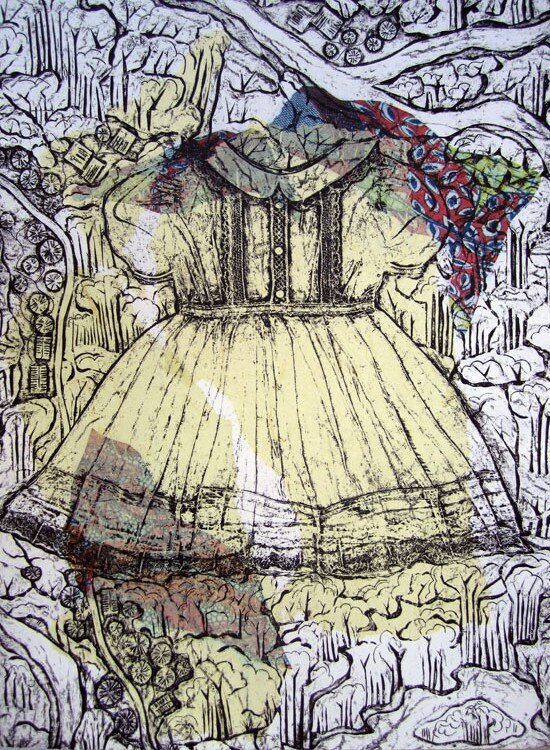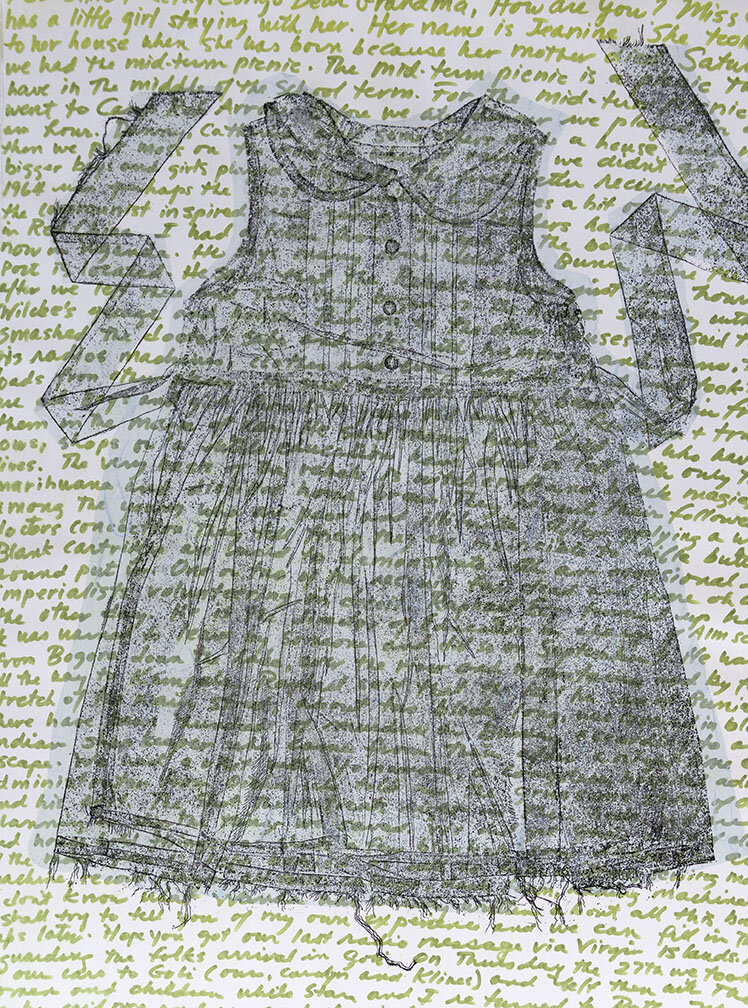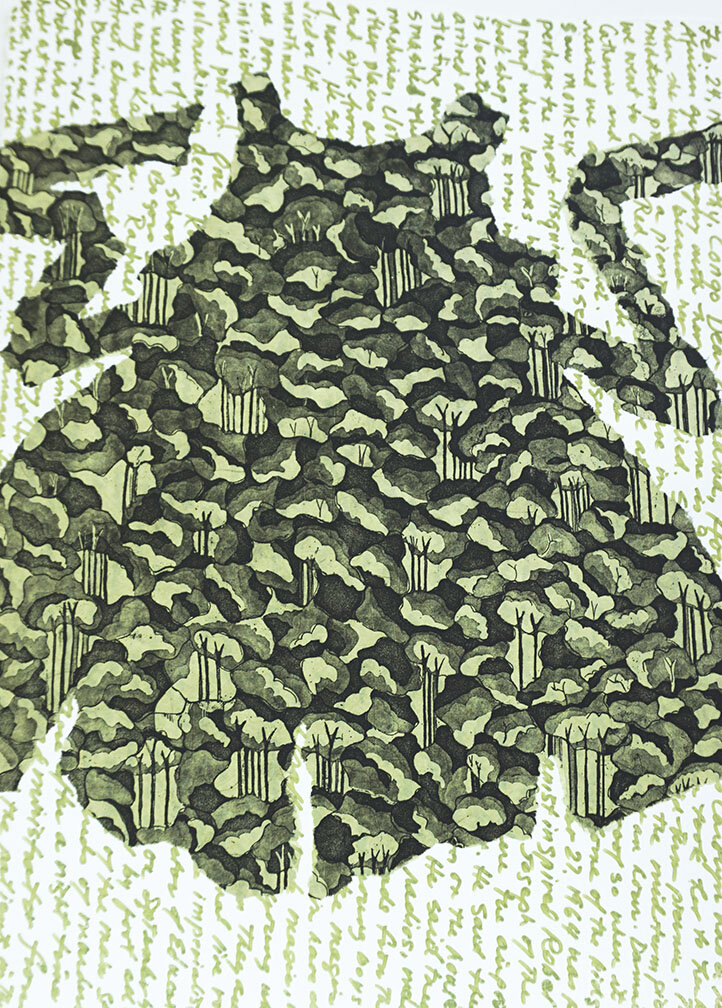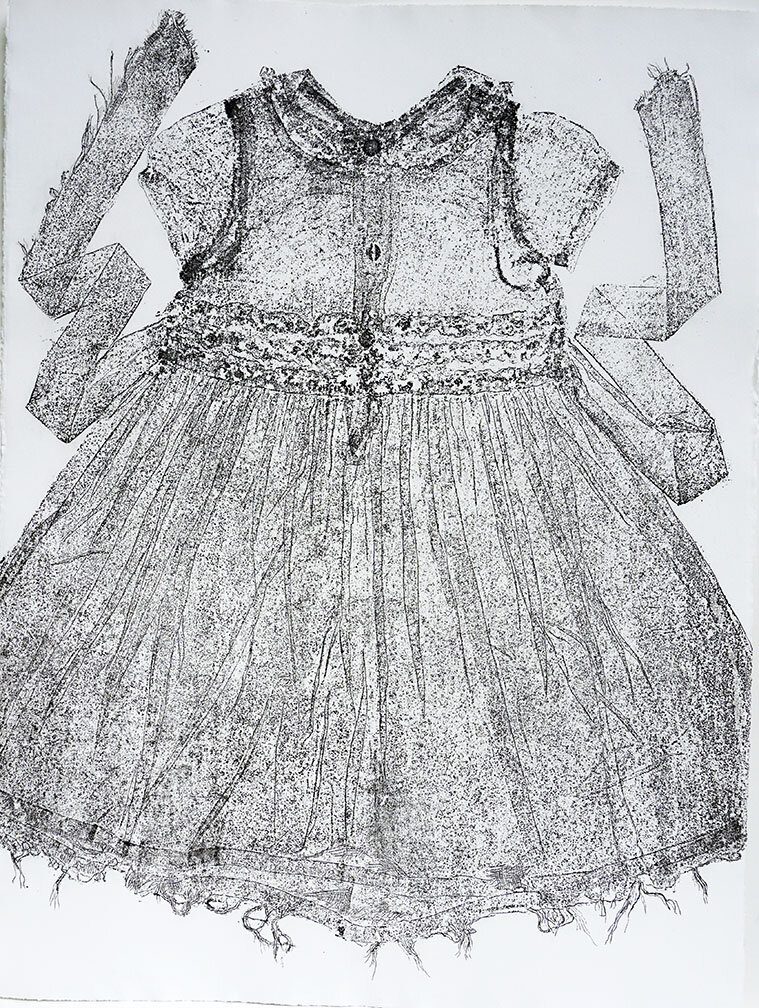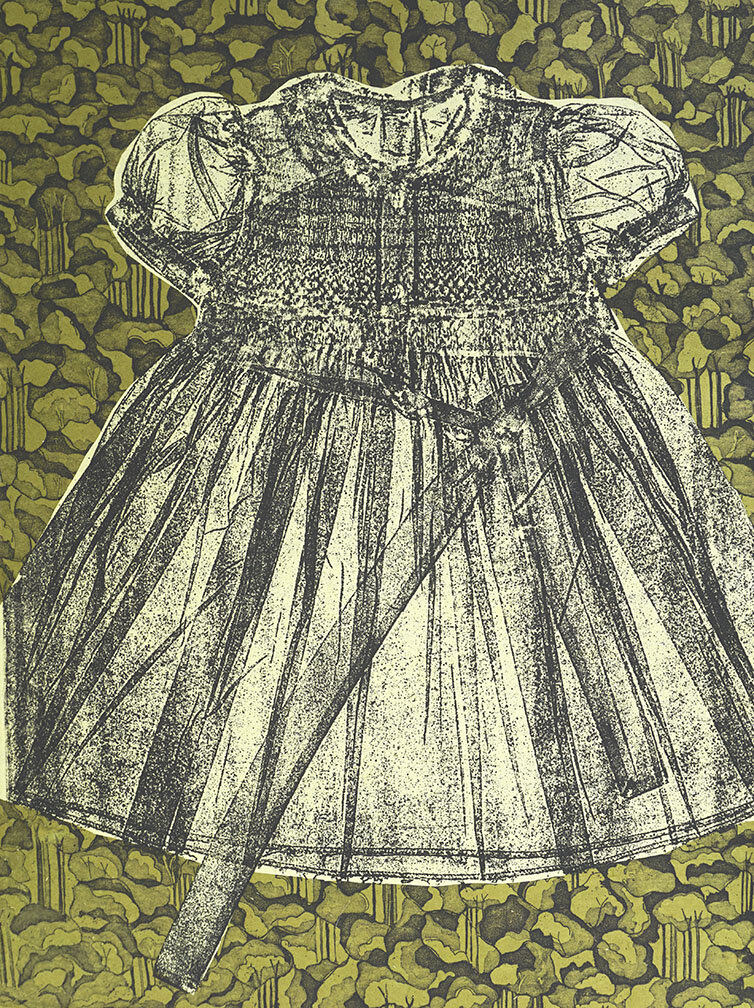Karen Cornelius
Printmaker
Fabric of belonging
Fabric of Belonging
Cornelius explores the tension of being both inside and outside of society. The fluffy nylon dresses sent to her by her Grandmother express the simplicity and innocence of childhood in contrast to the complexity, danger, uncertainty and fear marking her survival as a little girl during an escape from an uprising in the Congo.
In her series of prints, Fabric of Belonging, Cornelius uses children’s party dresses and letters written to her grandparents as both subject and background, concurrently uniting the various perceptions of the adult and the child. She layers past and present realities of the diverse cultures and situations she has experienced and her art poignantly voices sensibilities of place, history and particular social concerns. Cornelius’ life history embodies multiple cultures from the Congo to Eritrea, to the US, Canada, Asia and Europe. Many of these experiences and subsequent understandings are simultaneously reflected with gentleness and directness. Her work also deals with environmental and health concerns as seen in her choice of materials and techniques and her insistence on using natural fabrics and papers, plant dyes and water-based inks.
Fabric has several meanings, referring to all kinds of cloth: woven, knitted or felted, smooth or textured. It also relates to the structure or framework of society as well as building and construction materials. Belonging implies an individual’s feeling or acceptance by a group or society. Identity imparts the uniqueness or particularities of oneself or a culture; while missing denotes lacking, absent or disappeared. These meanings are all interwoven into the messages in Cornelius’ art.

Soft Ground Etching
Etching is an original printmaking process using acid or a mordant to cut into the unprotected parts of a metal surface to create a design.
In this work, I transferred actual children’s dresses onto the aluminum plate using a soft ground of asphaltum, beeswax and rosin. The soft ground remains soft, pliable and sensitive to pressure allowing textured materials to be pressed into the surface. When the textured material which in this case was a child’s dress is carefully removed from the plate an impression consistent with the clothing is exposed. The ground must be hardened on the metal plate before being etched. I used a less toxic mordant of copper sulfate and salt to etch the aluminum plates for this series.
Once the resist is removed, the plate is inked and wiped by hand pushing ink into every line and texture, then wiping the excess off the surface. The inked image is transferred onto paper by running the plate topped with a piece of rag paper between a steel roller and a steel bed of a hand-driven etching press.





